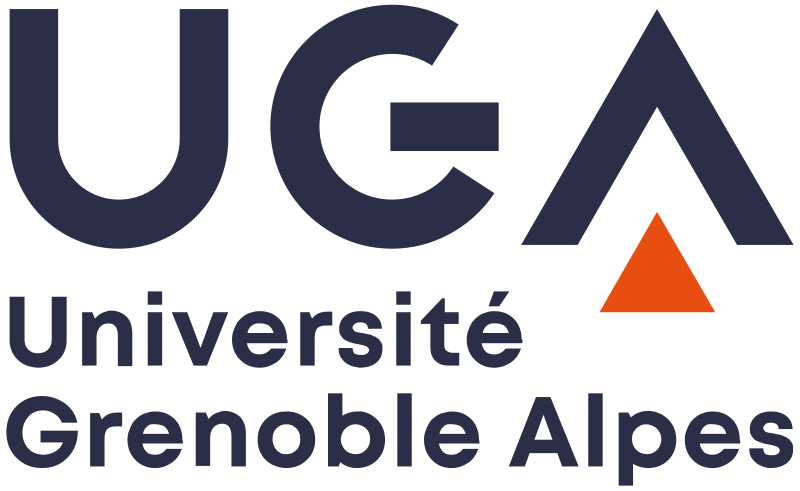@article{RO_1981__15_2_153_0,
author = {Vayssade, M. and Barthes, J. P. A.},
title = {Une approche informatique d'un probl\`eme de partitionnement complexe},
journal = {RAIRO - Operations Research - Recherche Op\'erationnelle},
pages = {153--164},
year = {1981},
publisher = {EDP Sciences},
volume = {15},
number = {2},
language = {fr},
url = {https://www.numdam.org/item/RO_1981__15_2_153_0/}
}
TY - JOUR AU - Vayssade, M. AU - Barthes, J. P. A. TI - Une approche informatique d'un problème de partitionnement complexe JO - RAIRO - Operations Research - Recherche Opérationnelle PY - 1981 SP - 153 EP - 164 VL - 15 IS - 2 PB - EDP Sciences UR - https://www.numdam.org/item/RO_1981__15_2_153_0/ LA - fr ID - RO_1981__15_2_153_0 ER -
%0 Journal Article %A Vayssade, M. %A Barthes, J. P. A. %T Une approche informatique d'un problème de partitionnement complexe %J RAIRO - Operations Research - Recherche Opérationnelle %D 1981 %P 153-164 %V 15 %N 2 %I EDP Sciences %U https://www.numdam.org/item/RO_1981__15_2_153_0/ %G fr %F RO_1981__15_2_153_0
Vayssade, M.; Barthes, J. P. A. Une approche informatique d'un problème de partitionnement complexe. RAIRO - Operations Research - Recherche Opérationnelle, Tome 15 (1981) no. 2, pp. 153-164. https://www.numdam.org/item/RO_1981__15_2_153_0/
1. et , Linear Branching Algorithmes in Combinatorial Optimizations, Stanford University, Engineering, Design division.
2. , et , Coefficient Reduction for Inequalities in 0-1 Variables, Department of Combinatorics and Optimization, University of Waterloo, Canada, Research report corr. 73-6, mars 1973. | MR
3. et , An Algorithm jor Integer Linear Programming: A Combined Algebraic and Enumeration Approach, Administrative Sciences, Yale, Report n° 29, décembre 1969, révisé février 1971. | Zbl
4. , Procedures for Estimating Optimal Solution Values for Large Combinatorial Problems, Management Science, vol. 23, n° 12, août 1977, p. 1273-1283. | Zbl
5. et , Problèmes de partitionnement : Exploration arborescente ou méthode de troncatures, R.A.I.R.O., 9e année, vol. 2, juin 1975, p. 53-65. | Zbl | Numdam
6. et , Integer Programming, John Wiley and Sons, NewYork, 1972. | Zbl | MR
7. et , The Set-Partitioning Problem: set Covering with Equality Constraints, Operational research, vol. 17, 1969, p. 848-856 | Zbl
8. et , Un algorithme pour les problèmes de recouvrement, R.A.I.R.O., 9e année, vol. 2, juin 1975, p. 33-51. | Zbl | MR | Numdam
9. et , Un algorithme pour le problème de partitionnement, R.A.I.R.O., 8e année, vol. 1, janvier 1974, p. 27-40. | Zbl | Numdam
10. et , An Adaptive Group. Theoretic Algorithm for Integer Programming Problems, Management Science, vol. 17, n° 5, janvier 1971, p. 285-306. | Zbl
11. , Integer Programming, Academic press, New York, 1971.
12. Guide de l'Université de Compiègne, 1976-1977, U.T.C, 60200 Compiègne.
13. , et , Computer Studies of a Certain Class of Linear integer Problems, Ohio State University Research Foundation. | Zbl
14. , et , Regular 0-1 Programs, Department of Combinatorics and Optimization, Research report corr 73-18, University of Waterloo, Canada, septembre 1973.
15. , et , Constraint Pairing in Integer Programming, Department of Combinatorics and Optimization, Research report corr 73-7, avril 1973, University of Waterloo, Canada. | Zbl
16. , Développement actuel des méthodes de construction automatique des tableaux de service, R.A.I.R.O., recherche opérationnelle, vol. 10, n° 2, février 1976, p. 113-119.
17. , A Bound-and-Scan Algorithm for Pure Integer Linear Programming with General Variables, Department of operations research, Stanford University, Technical report n° 11, 20 mai 1969. | Zbl | MR
18. , Efficient Heuristic Procedures for Integer Linear Programming with an Interior, Department of operations research, Stanford University, Technical report n° 2, 28 février 1969. | Zbl | MR
19. et , Méthodes et modèles de la recherche opérationnelle, tomes 1, 2, 3, Dunod, Paris, 1970, 1972, 1974. | Zbl
20. , The Bounded Variable Algorithm for String Integer Linear ProgrammingProblems, Thesis, Washington University, janvier 1968, Saint-Louis, Missouri.
21. et , Une application de la notion de dualité en programmation en nombres entiers : sélection et affectation optimales d'une flotte d'avions, R.A.I.R.O., vol. 11, n° 2, mai 1977, p. 201-222. | Zbl | MR | Numdam
22. , Algèbre moderne et théorie des groupes, Dunod, Paris, 1970. | MR
23. , Integral Solutions of Integral Linear Systems, University of Chicago.
24. , The set Covering Problem: a Group Theoretic Approach, R.A.I.R.O., 5e année, vol. 3, octobre 1973, p. 83-104. | Zbl | Numdam
25. et , PAF 1 .0, U.T.C., mai, p. 76-23.
26. , Heuristic 0 . 1 Linear Programming; an Experimental Comparison of three Methods, Management Science, vol. 24, n° 1, september 1977, p. 91-103. | Zbl | MR









